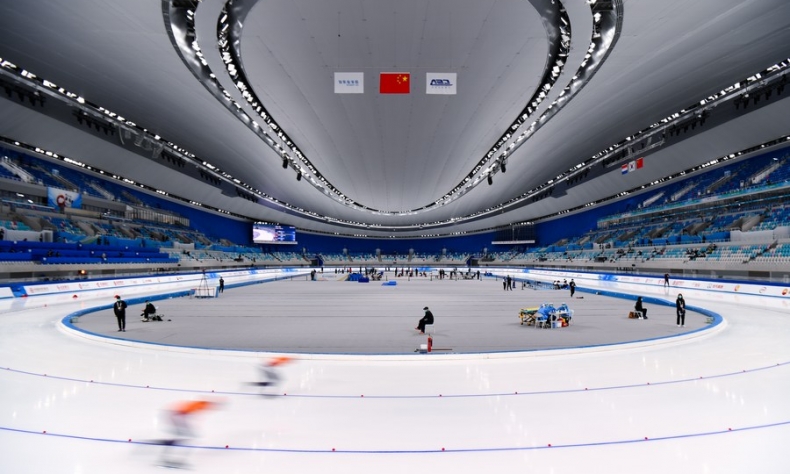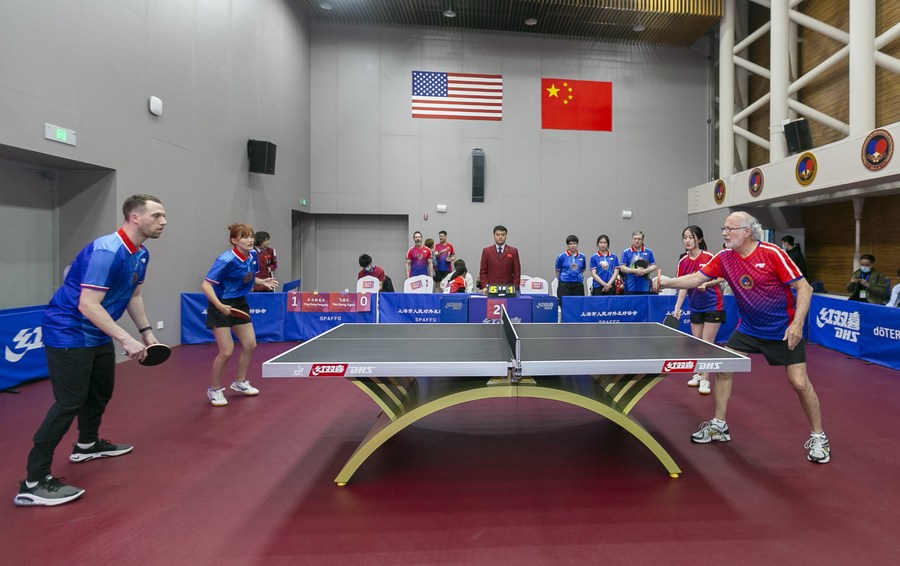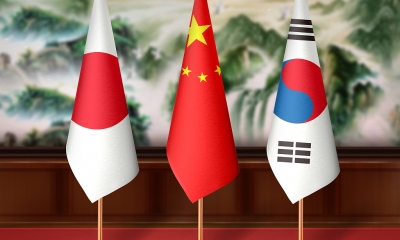A Diplomatic Boycott of the Beijing Winter Olympics Is a Silly Idea

Despite many ups and downs since the early 1970s, the U.S. and China have benefited immensely from the political, economic and cultural interactions between the two nations.
The much-anticipated video summit last week between Chinese President Xi Jinping and U.S. President Joe Biden had ended just a few hours before the Washington Post reported that Biden was considering not attending the 2022 Beijing Olympics.
The reason: He wanted to do something to express his discontent with China’s human rights record. The claim, which the White House would not deny, was built around one of the many corrosive beliefs about China discussed in U.S. media and political circles each day: China is a nation committed to anti-Western ideals and every effort to show disgust with the Chinese government and its people must be taken advantage of.
Of course, no Western politician would dare take a serious look at the debasing of the poor and minorities in their country while suggesting that China is a bad place. And no Western politician would offer congratulations to China for its eradication of poverty, come to think of it.
Recent history has informed us that boycotts of the Olympics do not work. Of course, the U.S.-led boycott of the 1980 Summer Olympics in Moscow and the corresponding Soviet-led boycott of the 1984 Summer Olympics in Los Angeles remain the most significant efforts on the part of governments to prevent their athletes from competing in the world’s pre-eminent international sports event. In both 1980 and 1984, the International Olympic Committee simply refused to bow to political pressure from Washington and Moscow; instead, IOC leaders confirmed that the cities (and by extension countries) were legitimate hosts of the Olympics, and the Games would continue.

Attempts of political interference had failed. The athletes who were present competed; all of them brought home memories and a few had medals as well. The official histories of these Olympiads acknowledge the boycotts, but you cannot blame most sports fans for saying “who cares?” as they remember many amazing individual and team efforts that defined those Games.
Therefore, if preventing athletes from participating in an Olympics has been shown a failure, then why would President Biden (and any Western leader who would support him) believe that refusing to travel to the Games would do anything to reduce their integrity?
You are right: Such a diplomatic boycott would be futile. Much like fans of sport did in 1980 and 1984, in 2022 we would look at Mr. Biden and say “who cares?”
It is perhaps not a coincidence that calls for a diplomatic boycott began to grow at the same time China was again celebrating the 50th anniversary of what is now universally known as ping-pong diplomacy. Fifty years ago, athletes from the United States and China — yes, with the support of their governments — had affirmed the important role sport could play in international relations. An otherwise anonymous group of American athletes accepted an invitation to visit China, befriending their Chinese counterparts at the same time, and soon ice-breaking in relations between the two nations began, leading to the ultimate diplomatic relations established starting January 1, 1979. The rest, as the cliche goes, is history. Despite many ups and downs since the early 1970s, the U.S. and China have benefited immensely from the political, economic and cultural interactions between the two nations.

The success of ping-pong diplomacy serves as a critical reminder that while who the winners of any single sports event are is unimportant, sport can be a dignified and mature way to bring societies closer together. One needs to look at the video of U.S. and Chinese table tennis players competing this week at the World Table Tennis championships to again see that sport can build friendships between the competitors and the nations they call home. Perhaps the Biden administration wanted to throw cold water on those positive images and stories by trying to steal the headlines with talk of a diplomatic boycott of the 2022 Winter Olympics. A far-fetched idea? Recognizing how cold U.S.-China relations are right now, would you or I really be surprised if a politician sought to deny athletes an opportunity to enjoy a moment in the spotlight?
Should the president follow through on his weak-sauce threat, you and I would expect multiple headlines in Western newspapers and multiple right-wing radio and television programs to support this ridiculous diplomatic boycott idea. This blip of attention will score political points for the president (or any leader of any Western nation), but, well you know, “who cares?”
On the evening of February 4, 2022, the Winter Olympics in Beijing will begin, and it makes no difference whether President Biden is watching from inside the stadium or from the White House.
 Facebook
Facebook
 Twitter
Twitter
 Linkedin
Linkedin
 Google +
Google +







